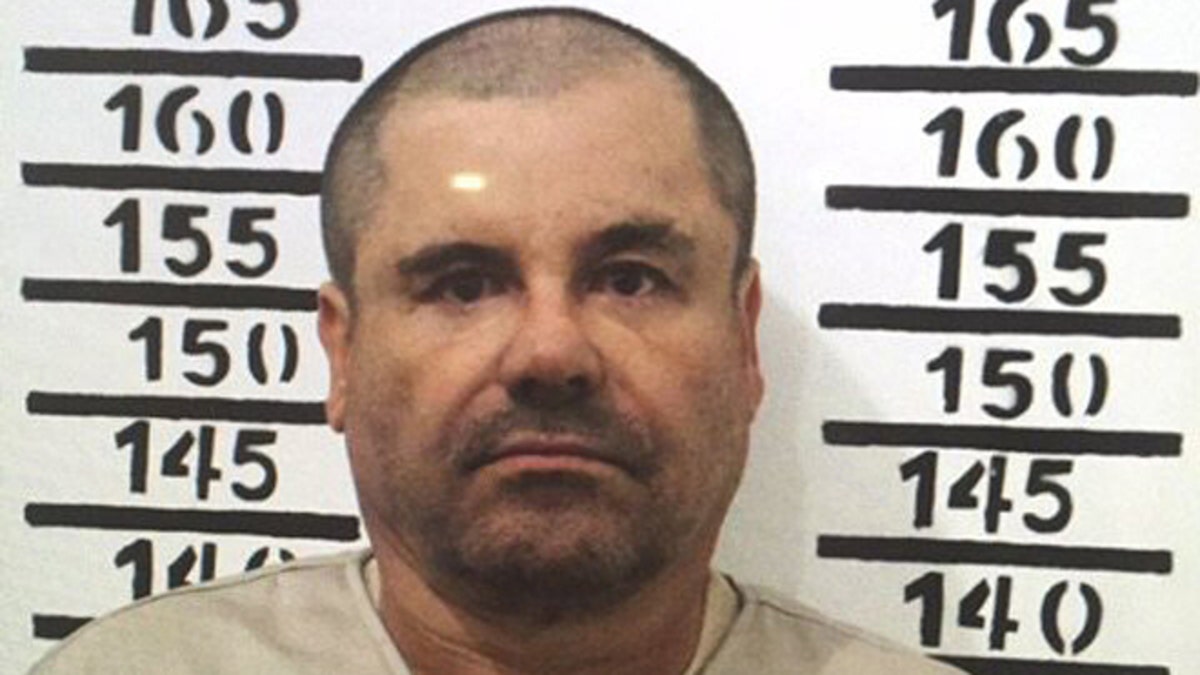
Joaquin 'El Chapo' Guzman in a Jan. 8, 2016 image released by Mexico's federal government.
Mexico City – The surface and circumstances of Sean Penn’s notorious Rolling Stone interview with Joaquín “El Chapo” Guzmán, the billionaire head of the Sinaloa Cartel, caused global outrage since the story broke last weekend.
But questionable ethics and questionable prose aside, the most factually eye-popping portions of the interview came in the form of boasts made by Guzmán during his seven-hour, tequila-fueled dinner with Penn.
So outrageous are they that Guzmán’s Mexican attorney, Juan Pablo Badillo, recently told Reuters that Penn fabricated the quotes. “It’s a lie. It’s sensationalism,” Badillo said. “I assure you [Chapo] never said it.”
Penn wrote that Guzmán told him, "I supply more heroin, methamphetamine, cocaine and marijuana than anybody else in the world. I have a fleet of submarines, airplanes, trucks and boats."
Finally, he also reportedly shed light on his escape from the jail in July of last year. Penn quoted him saying that his engineers trained for several months in Germany in order to construct his infamous mile-long tunnel out of Altiplano prison.
But how much of this bragging – if Guzmán actually said it – is true?
“Pretty much all of it,” Alejandro Schtulmann, head of research at the Mexico City security analysis firm EMPRA, told Fox News Latino. “The Sinaloa Cartel provides between 25 and 35 percent of the cocaine in the United States. Since this is Chapo’s ‘department’ within the cartel, his claim is not exaggerated.”
Guzmán’s statement about owning “fleet” of air, land, and sea vehicles is also largely accurate.
“Think of this in terms of out-sourcing,” Schtulmann explained. “The Sinaloa Cartel imports methamphetamine [ingredients] from China, while its exports to Europe are also strong. Its transport infrastructure is obviously massive, requiring the service of independent, clandestine transport companies in its distribution chain. While Chapo may not literally ‘own’ these vehicles, they are ‘his’ insofar as they are [his] subcontractors’.”
Nor does the crime boss’ self-portrait suggest a weakened grip on operations during his 504 days in Mexico’s maximum-security Altiplano prison, from his arrest on 22 February 2014 to his escape last July 11. During this period, he received some 440 visits from his lawyers – many of whom are considered by analysts to be lower-level functionaries of the Sinaloa Cartel.
Lourdes Pintado Gallardo, associate analyst at Control Risks, a global risk consulting firm, explained that for all the violence it employs and turmoil it causes, the Sinaloa Cartel is a surprisingly functional organization.
“Lieutenants like Ismael ‘El Mayo’ Zambada didn’t challenge Chapo’s role during his incarceration,” she told FNL, “because things still went very well for the cartel in terms of profits and power. In short, they are stronger together.”
Schtulmann suggests that the cartel’s “organic structure” allows Chapo’s position within it to remain strong.
“Major figures take control of separate but similar operations,” he explained, “meaning they can ‘slot in’ for one another as in a corporation. Until his death, ‘Nacho’ Coronel was in charge of synthetic drugs. After he died, Chapo took care of his distribution until a successor was found. The capos all support each other.”
Guzmán’s mention of a German-trained engineering crew that constructed his escape tunnel is harder to verify, but it is believable in the context of the cartel’s history.
Tunnels crossing the U.S.-Mexico border that have been linked by authorities to the Sinaloa cartel have been remarkably ambitious endeavors. One tunnel found by U.S. agents in October 2015 near Tijuana, was 35 feet underground and eight football fields long.
So it’s not hard to imagine the consultation, expense and care that went into constructing Guzmán’s escape route out of Altiplano.
"You have to remember that the Sinaloa Cartel is an international organization, unlike the new organized crime groups, who focus on local markets," which makes a German connection more probable, according to Schtulmann.
Guzmán may be behind bars – at least for now – but the claims allegedly made by the most notorious figure in what Schtulmann calls “Mexico’s last true cartel” are likely to remain true for some time to come.
“Chapo continued to run the Sinaloa Cartel from prison,” says Control Risks’ Pintado Gallardo. “Unless he is extradited to the United States, that will continue to be the case.”
